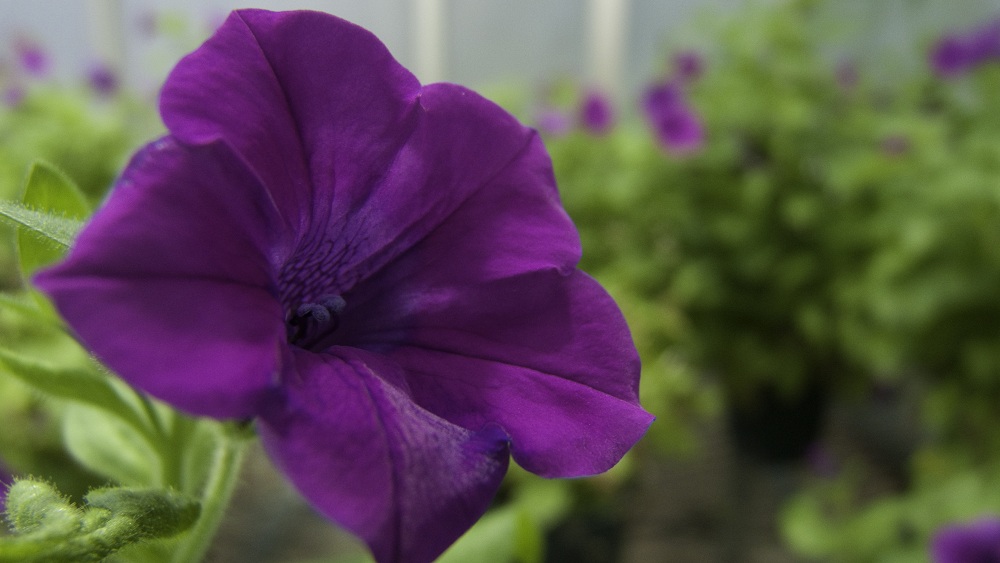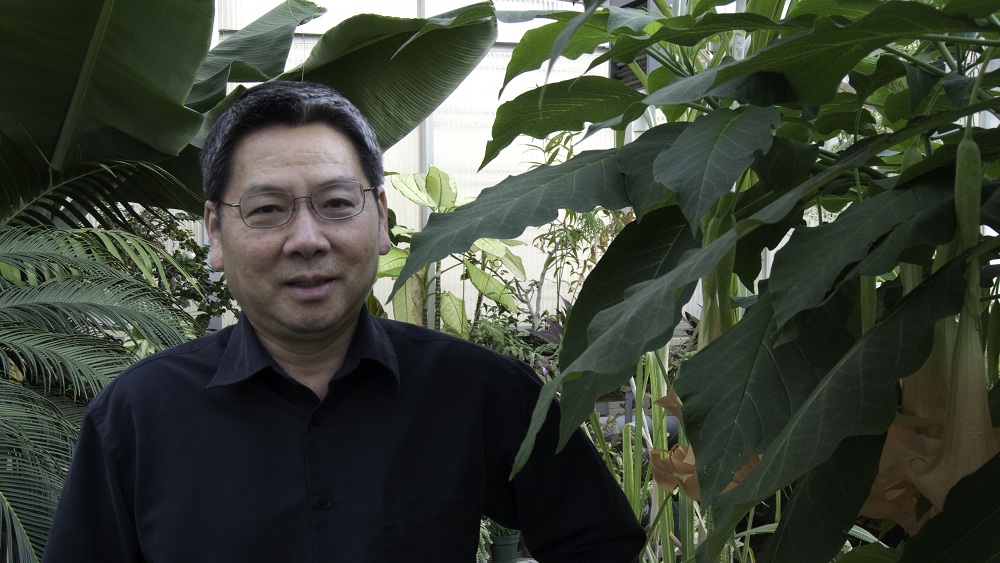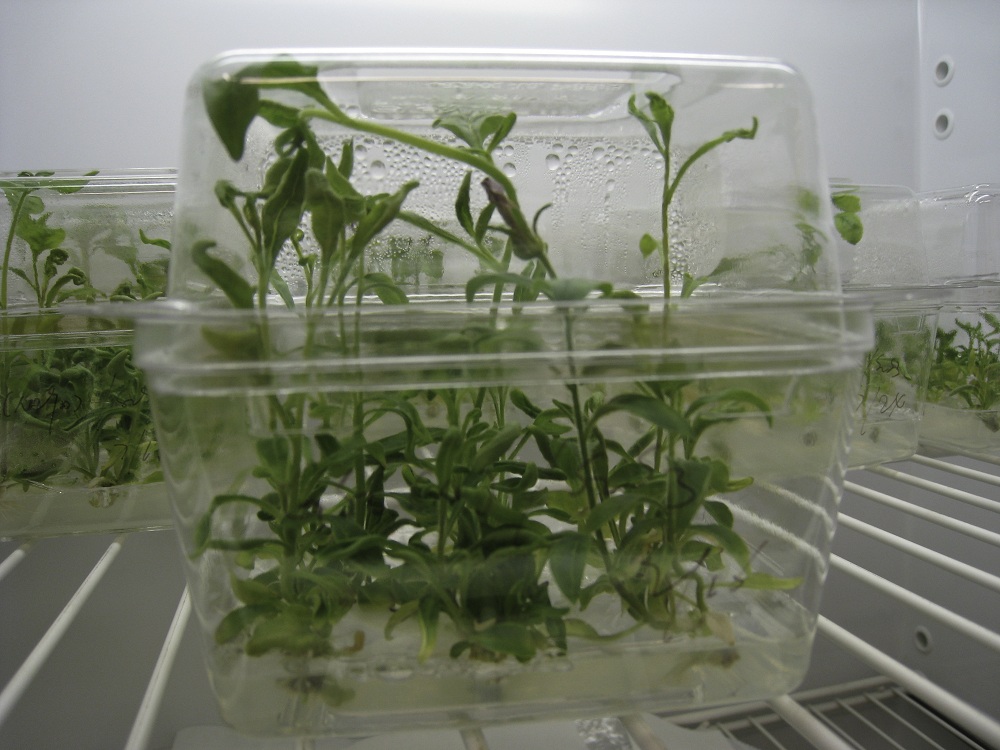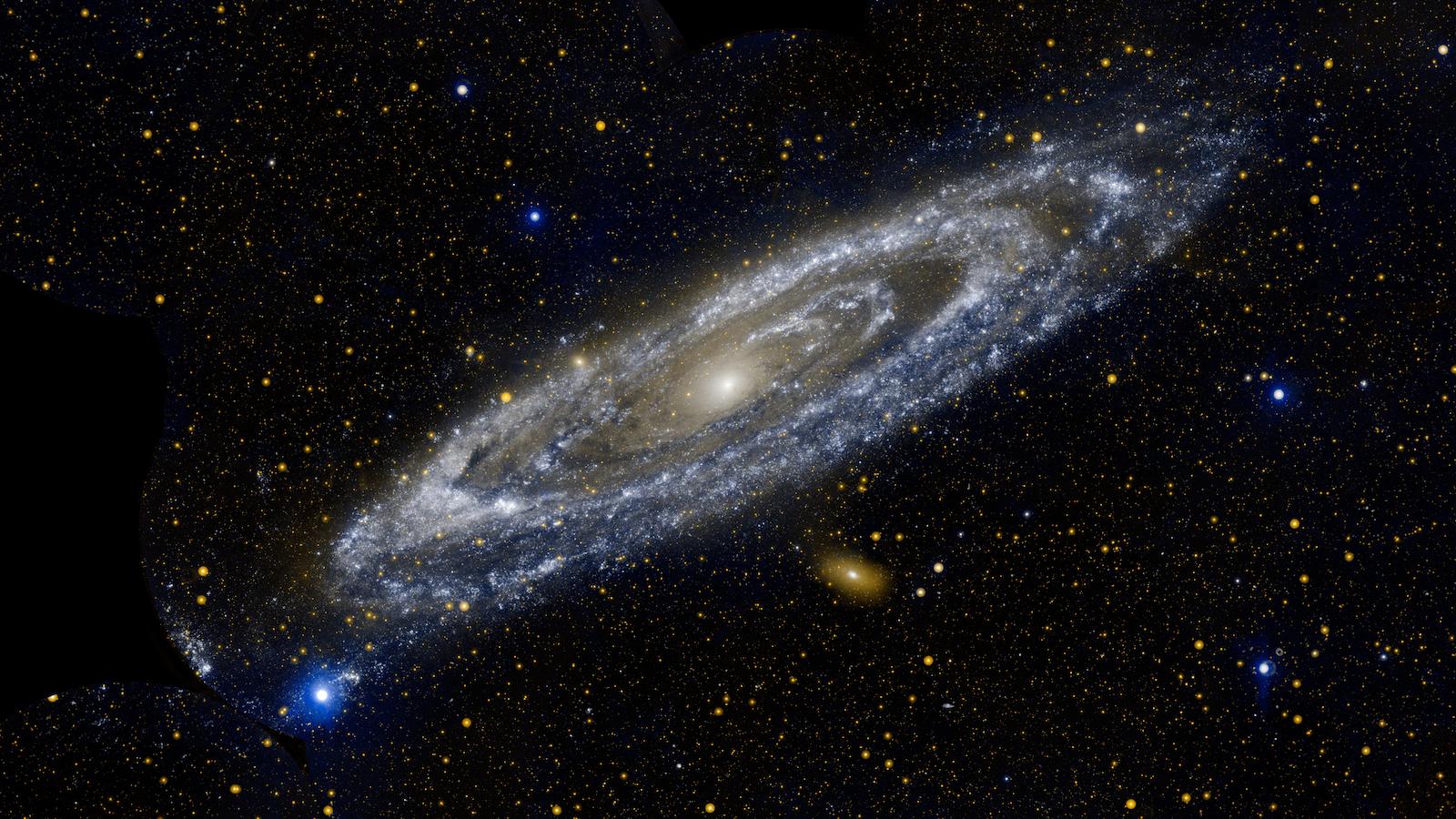ScienceLives: How Flowering Plants Prevent Inbreeding

Get the world’s most fascinating discoveries delivered straight to your inbox.
You are now subscribed
Your newsletter sign-up was successful
Want to add more newsletters?

Delivered Daily
Daily Newsletter
Sign up for the latest discoveries, groundbreaking research and fascinating breakthroughs that impact you and the wider world direct to your inbox.

Once a week
Life's Little Mysteries
Feed your curiosity with an exclusive mystery every week, solved with science and delivered direct to your inbox before it's seen anywhere else.

Once a week
How It Works
Sign up to our free science & technology newsletter for your weekly fix of fascinating articles, quick quizzes, amazing images, and more

Delivered daily
Space.com Newsletter
Breaking space news, the latest updates on rocket launches, skywatching events and more!

Once a month
Watch This Space
Sign up to our monthly entertainment newsletter to keep up with all our coverage of the latest sci-fi and space movies, tv shows, games and books.

Once a week
Night Sky This Week
Discover this week's must-see night sky events, moon phases, and stunning astrophotos. Sign up for our skywatching newsletter and explore the universe with us!
Join the club
Get full access to premium articles, exclusive features and a growing list of member rewards.
This ScienceLives article was provided to LiveScience in partnership with the National Science Foundation.
Teh-hui Kao is a professor of biochemistry and molecular biology, and chair of the Intercollege Graduate Degree Program in Plant Biology, Penn State University. His research focuses on the self/non-self recognition mechanism adopted by Petuniaand many other flowering plants to prevent inbreeding and promote outcrossing. The pistil, the female reproductive organ, can distinguish between self and non-self pollen, and only allows non-self pollen to affect fertilization. Kao's lab identified the pistil gene that is involved in self/non-self recognition in 1994 (published in Nature); identified the first of the multiple pollen genes that are involved in self/non-self recognition in 2004 (published in Nature); and identified additional pollen genes through collaboration with Professor Seiji Takayama's lab in Japan in 2010 (published in Science). To learn more about Kao's research, view this video.
Name: Teh-hui Kao Age: 59 Institution: Penn State University Field of Study: Plant Biology
What inspired you to choose this field of study? My undergraduate major was chemistry with a concentration in biochemistry, and my Ph.D. research was in biophysical chemistry conducted in a chemistry department, so I have never received any formal training in plant biology. During my postdoctoral research, I had an opportunity to collaborate with two plant biologists who were studying self-incompatibility in the Brassicaceae (cabbage) family. As I dug into the literature to learn more about self-incompatibility, I became fascinated by a wide variety of strategies flowering plants have adopted to prevent inbreeding. At that time (early 1980s), nothing was known about the genes that control self/non-self recognition between pollen and pistil for any type of self-incompatibility. My strong interest in understanding the mechanism by which pistils of flowering plants can select the "correct" type of pollen for fertilization led me to decide to pursue this line of research in my independent position. For more than two decades, my lab has been studying the type of self-incompatibility that has been found in the Solanaceae and two other families. The deeper we dig, the more questions we uncover and the more we respect flowering plants for evolving into such a complex system for the sole purpose of preventing inbreeding.
What is the best piece of advice you ever received? Always keep your eyes open for unexpected results. It is human nature to discount unexpected results, especially if one thinks that the hypothesis being tested is "beautifully" formulated and should yield certain results. However, unexpected results could mean that the problem we are trying to solve is more complex than we think. In this case, unexpected results can provide a great opportunity for new discoveries if we carefully consider alternative hypotheses that can explain the unexpected results and if we design new experiments to test them.
What was your first scientific experiment as a child? I wish I could say that I was born a researcher. I received all my education though college in Taiwan at a time when students had to take entrance exams to go from primary school to middle school, from middle school to high school, and from high school to college. At every level, the competition was very fierce and the ability to get into one of the few "star" schools might very well determine the success of a student who was trying to get into a "star" school at the next level. So, studying for entrance exams in school and at after-school cram schools was a high priority. I wasn't exposed to any experiments until I got to high school. All I can remember is that I did not like the biology experiments where we had to dissect frogs. This was one of the reasons why I chose chemistry, rather than biology, as my major in college, and it shouldn't be a surprise that I have been working with plants in my entire independent research career, to date.
What is your favorite thing about being a researcher? Being a researcher keeps my brain working all the time, even in dreams! I think about the experiments that we have just performed—for example, how the results should be interpreted and why some of the experiments didn't work—and I plan for the next big experiments. I try to keep up with the [research] literature and I have to exchange results with other researchers in the field to make sure that we are aware of the developments elsewhere and are not working in a vacuum. In short, I enjoy the never-ending challenges to my brainpower.
Get the world’s most fascinating discoveries delivered straight to your inbox.
What is the most important characteristic a researcher must demonstrate in order to be an effective researcher? I can think of many important characteristics that I believe an effective researcher must possess, but to name just one, I would say, having passion about the research he/she is doing is very important. Research is rarely a smooth path, and it requires great passion and dedication to be able to endure temporary setbacks and sustain interest in pursuing the answer to the question one is studying. I often tell my students that I consider my work a hobby, and not just a job, as it gives me so much joy, satisfaction and mental rewards.
What are the societal benefits of your research? The self-incompatibility system my lab is studying can potentially be used for hybrid seed production, an important agricultural practice. Crop plants grown from hybrid seeds have greater vigor and produce higher yield than plants grown from seeds obtained from self-pollination. However, almost all crop species (e.g., corn, soybean and wheat) are self-compatible, because plant breeders selected out self-incompatibility in order to produce inbred lines homozygous for desired traits. Thus, to produce hybrid seed of commercial cultivars, it is necessary to manually or mechanically remove anthers from the plant serving as the female parent to prevent self-fertilization. This is a labor-intensive, costly and inefficient process.Understanding the mechanism of self-incompatibility will likely help design strategies for restoring self-incompatibility back to crop species. If this can be accomplished, it will greatly facilitate hybrid seed production and have tremendous agronomic benefits.
Who has had the most influence on your thinking as a researcher? While I was an undergraduate student at the National Taiwan University, T.B. Lo allowed me to experience for the first time what research was all about, and inspired me to pursue a research career. In graduate school at Yale, my thesis advisor, Donald Crothers, set a high standard for research and created an intellectually stimulating environment for the students. There were daily impromptu discussions among the graduate students and postdoctoral researchers. Crothers often dropped in to hear the discussion, and when he did, he always had the last word. This experience taught me the value of sharing thoughts with other researchers and the benefits of collegiality among co-workers. My postdoctoral mentor, Ray Wu of Cornell University, gave me complete freedom to pursue my own side-projects that laid the foundation for my independent research. I also learned from him that a researcher has the awesome responsibility of mentoring young scientists, as well as ways to successfully foster students' crucial transition from lab member to lab principal.
What about your field or being a researcher do you think would surprise people the most? As I have spent my entire research career, so far, in academic environments, I would like to address this question from my experience as an academic researcher. I think it would surprise people the most to know that the life of a researcher is not at all boring or dull. For me, the constant pressure to keep up with the rapid pace of scientific advancements in my field and in other related fields makes my daily life exciting. The joy of having been able to contribute to the understanding of the mystery behind the complicated biological system I am studying makes my life fulfilling. The opportunity to train undergraduate and graduate students in research, and to inspire them to pursue a research career makes my job rewarding.
If you could only rescue one thing from your burning office or lab, what would it be? I hope I never have to face such a decision, as it would be terrible to lose any of the hundreds of items in my office and lab. But, should I have to face such a decision, it would not be the laptop (as I have backups for every file) and instead, I would grab the lecture notes (in about a dozen manila folders) for the honors biochemistry course I teach (assuming that my students would grab their own lab notebooks or some other irreplaceable items). I have taught this course for more than two decades, and have almost perfected the notes for each lecture. These are impossible to replace.
What music do you play most often in your lab or car? My father gave me the very first LP that I ever owned (violin concertos by Mendelssohn and Tchaikovsky) when I was in Taiwan in the fourth grade. The record is long gone, but classical music has become an integral part of my life. I listen to it in my office and at home, and if I had to drive to work, I would certainly listen to it in the car (but I only live a 10 minute walk away from my office!). I left behind a classical music collection of over 700 LPs when I came to the United States to study more than three decades ago. Over the years, I have somewhat caught up with the technological development in the music industry, from LPs and real-to-reel tapes, to cassettes and eight-tracks, and to CDs. But I still don't own an iPod (nor do I have a cell phone). Nowadays, I most frequently listen to classical music over Internet radio stations, as I like the randomness of the music I hear, and I occasionally play CDs on my Bose Wave Radio. It is such a joy and luxury to be able to immerse myself in classical music while at work.
Editor's Note: This research was supported by the National Science Foundation (NSF), the federal agency charged with funding basic research and education across all fields of science and engineering. Any opinions, findings, and conclusions or recommendations expressed in this material are those of the author and do not necessarily reflect the views of the National Science Foundation. See the ScienceLives archive.
 Live Science Plus
Live Science Plus













